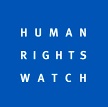By Sami Zaptia.
London, 15 February 2020:
Banned cluster munitions have been used in Tripoli and this use should be stopped and stocks should be secured and destroyed, Human Rights Watch (HRW) said in a report released on Thursday. It also called for the establishment of an International Commission of Inquiry to document violations, identify those responsible, preserve evidence where possible for future action.
The report said that forces affiliated with the Libyan National Army (LNA) used cluster munitions in a residential area in Tripoli on December 2, 2019.
The forces, under the command of Khalifa Haftar, have been battling forces loyal to the United Nations-recognized Government of National Accord (GNA) for control of Tripoli, the capital.
“Using cluster munitions shows reckless disregard for the safety of civilians,” said Stephen Goose, arms division director at HRW and chair of the Cluster Munition Coalition. “Cluster munitions should never be used by anyone under any circumstances due to the foreseeable and unacceptable harm for civilians.”
HRW said that the LNA or their international supporters carried out an airstrike on or around December 2 in a residential area adjacent to al-Asfah road near the Airport Road in the southern suburbs of Tripoli. There were no reports of casualties.
It said that it had visited the site on December 17 and found remnants of two RBK-250 PTAB 2.5M cluster bombs, as well as evidence that high-explosive air-dropped bombs were also used in the attack. The area was not known to be contaminated by cluster munitions before the attack, the report added.
The report reminded that the 2008 Convention on Cluster Munitions comprehensively prohibits cluster munitions and requires their clearance as well as assistance to victims. Libya has not joined the treaty, but the report said that all parties to the armed conflict in Libya should abide by the emerging norm it establishes against any use of cluster munitions in any circumstances.
The HRW report added that cluster munitions have been banned because of their widespread indiscriminate effect and long-lasting danger to civilians. They typically explode in the air and send dozens, even hundreds, of small bomblets over an area the size of a football field. Cluster submunitions often fail to explode on initial impact, leaving duds that act like landmines.
It added that on 5 February, 2020, Human Rights Watch emailed the office of the LNA spokesperson seeking comment on the findings of the use of cluster munitions in a residential area, but that it did not receive a response.
During the 17 December site visit, HRW interviewed two men who said they were there during the attack. Both men were members of an armed force under the Tripoli-based GNA who were guarding a checkpoint on a main road al-Asfah running through the residential area. The men said there had been no casualties from the attack.
A researcher found remnants of two cluster munitions and the small but distinctive impact craters of multiple explosive submunitions. Each RBK-250 PTAB-2.5M cluster bomb contains 30 PTAB-2.5M high explosive anti-tank (HE/AT) submunitions. The remnants included the tail and cargo sections of the bombs as well as the fuze rings of the submunitions that detonated.
Larger craters from the explosion of at least two other high-explosive bombs, apparently dropped simultaneously with the cluster munitions, were in the same area. The affected area totalled 17,000 square meters of mixed residential, agricultural, and vacant land. One cargo section of the cluster bombs hit al-Asfah Road, near its intersection with Hay al-matar airport road.
The HRW report said that the LNA has received military support from the United Arab Emirates, Jordan, and Egypt, in violation of the Libya arms embargo, based on a report by the Panel of Experts of the Libya Sanctions Committee. The UAE has supported the LNA with armed drones and launched airstrikes in support of the LNA with its fighter jets.
Turkey has reportedly supported the GNA with armed drones, in violation of the Security Council arms embargo, and signed a Memorandum of Understanding with the GNA on November 27 that lays the groundwork for military intervention and support of the GNA.
Fighters from Sudan and Chad have been fighting for both sides, and Russian fighters have been involved in fighting on behalf of the LNA, news reports said. News reports that Syrian fighters had arrived in Libya in December and have been fighting in support of the GNA were confirmed by the head of the UN mission in Libya, who estimated the number of Syrian fighters to range between 1000-2000, the report added.
To help bring an end to the cycle of impunity in Libya, the report said, the UN Human Rights Council in Geneva should, during its March 2020 session, establish an International Commission of Inquiry to document violations, identify those responsible, preserve evidence where possible for future criminal proceedings, and publicly report on the human rights situation in Libya, HRW said.






